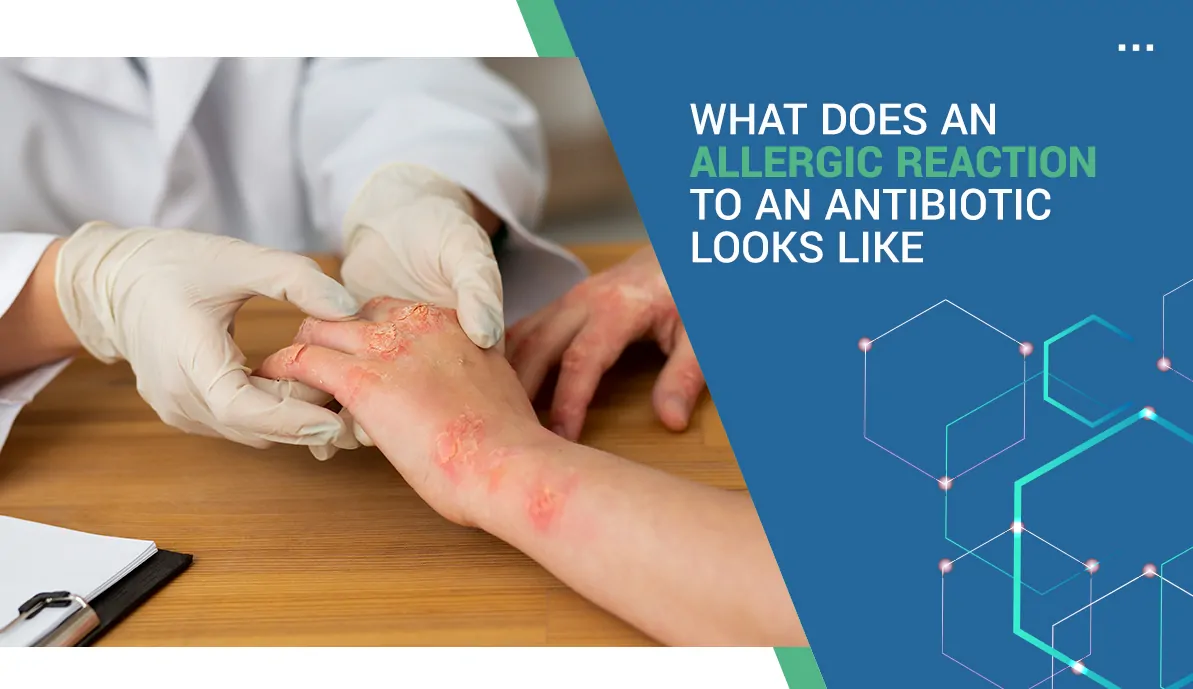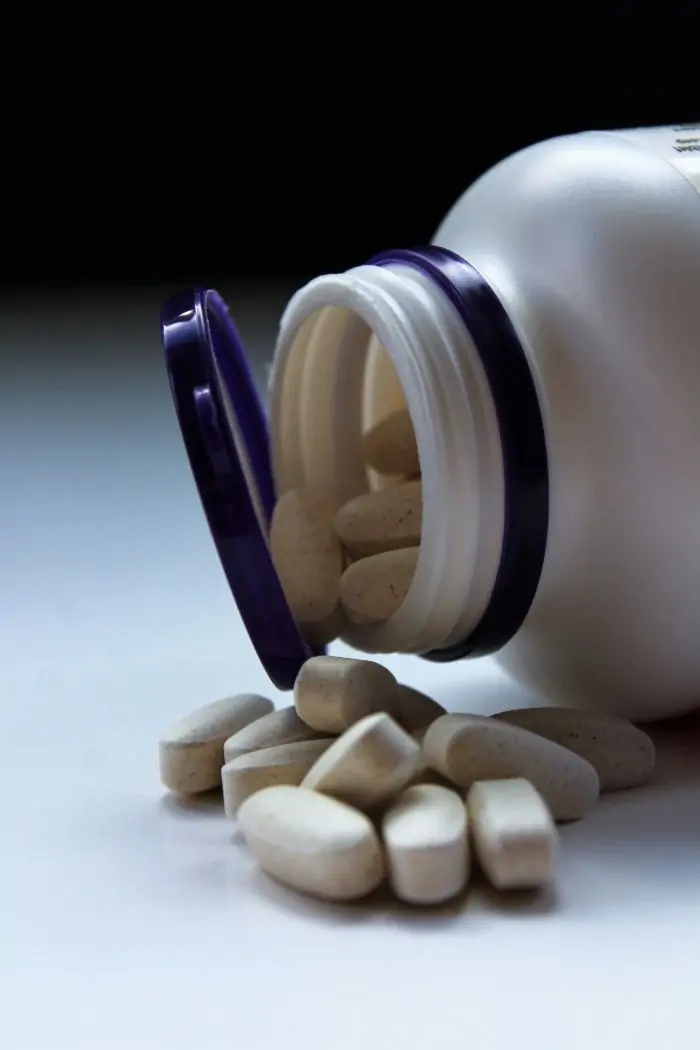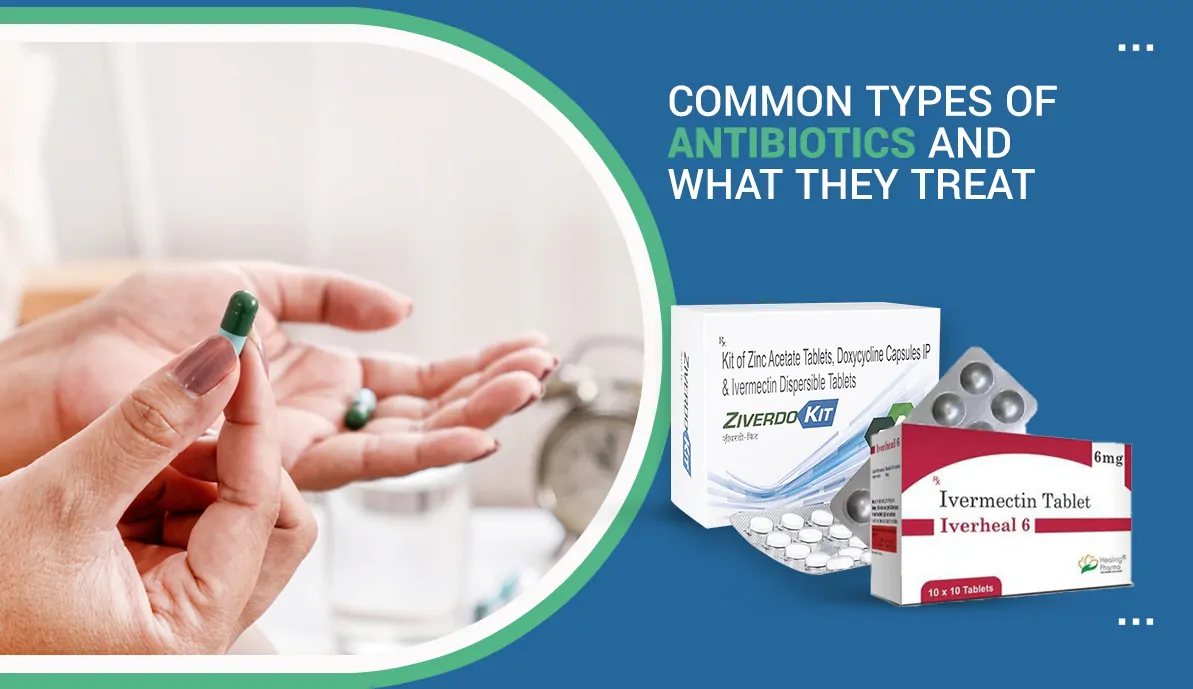Antibiotics are widely prescribed medicines to treat bacterial infections and diseases. However, antibiotics might have minor to severe side effects upon consumption, thereby increasing health risks.
Allergic reactions are one of the significant side effects arising from antibiotic consumption. Not all antibiotics can cause an allergic reaction, whereas some may be fatal. But how to recognise allergic reactions arising from antibiotics? Or how can we prevent them?
In this blog, we discussed the various causes of allergic reactions, their potential impacts, and effective ways to prevent them.
What is a Drug Allergy?
A drug allergy is an adverse reaction by the body’s immune system to a medication, which is identified as a component of a drug or any harmful foreign invader. Your body’s natural immune system responds by triggering a chemical known as Histamine. This can cause allergic reactions, such as rashes, hives, fever, and, in severe cases, anaphylaxis.
Common Allergic Reactions to Antibiotics
Before you buy antibiotics online, it is essential to know about specific allergic reactions that can arise due to various reasons:
Common allergic reactions include:
- Skin rash or hives: Red, itchy bumps or patches on the skin are often the first sign.
- Swelling: Particularly around the face, lips, eyes, or throat.
- Breathing difficulties: Shortness of breath or wheezing may occur in more serious cases.
- Anaphylaxis: A rare but life-threatening allergic reaction that can cause a sudden drop in blood pressure, difficulty breathing, and loss of consciousness. This requires emergency medical attention.
The most frequent antibiotic allergy is to penicillin and related drugs. Other antibiotics, such as sulfa drugs, cephalosporins, and macrolides, can also cause allergic responses. However, it’s important to note that not everyone who experiences a reaction to one antibiotic will react to all others. Cross-reactivity depends on the drug’s chemical structure and the individual’s immune system.
Delayed Allergic Reactions
In some instances, delayed allergic reactions may also occur after antibiotic consumption. Some can appear even hours or days after the antibiotic consumption. Delayed allergic reactions from certain antibiotics can be:
- Joint pain and fatigue: The Immune system’s reaction can cause muscle and joint inflammation.
- Maculopapular rash: Flat, red spots arising across the body and sometimes red bumps that are both itchy and painful in later stages.
- Fever: Mild to moderate fever can also accompany.
Does a Drug Rash Always Mean an Allergy?
Not necessarily. A drug rash doesn’t always indicate a true allergy. Sometimes, skin rashes occur due to other reasons, such as the infection itself, a non-allergic side effect, or interactions with other medications.
- Non-allergic causes of rashes can include:
- The body’s immune response to the infection being treated.
- Irritation from the drug’s chemical components.
- Sensitivity reactions that are not mediated by the immune system (e.g., photosensitivity).
For example, amoxicillin or ampicillin can cause a rash in patients with viral infections, such as mononucleosis, but this is not an allergic reaction.
If a rash appears, it’s essential not to self-diagnose. A healthcare provider can determine whether the reaction was allergic or not through medical evaluation, and if necessary, skin testing or allergy testing. Mislabeling yourself as “allergic” to an antibiotic can limit treatment options unnecessarily, so an accurate diagnosis is crucial.
Preventative Measures
After you buy antibiotics online, it is essential to take specific preventive measures to avoid allergic reactions. Both patients and healthcare providers are responsible for preventing any allergic reactions. Here’s how you can take specific preventative measures:
- Provide a complete medical history: Always inform your doctor about any past drug reactions, allergies, or family history of medication allergies.
- Avoid self-medication: Taking antibiotics without a prescription increases the risk of using an unnecessary or unsafe drug.
- Use alternatives when necessary: If you’ve had an allergic reaction to one antibiotic, your doctor can prescribe a different class of medication that’s less likely to cause problems.
- Undergo allergy testing: If you suspect an antibiotic allergy, allergy tests or supervised re-challenges can confirm or rule it out safely.
- Monitor symptoms closely: Report any rash, itching, or unusual reaction to your healthcare provider immediately.
Final Thoughts
Experiencing a side effect from an antibiotic doesn’t mean you are allergic to it. Antibiotics can cause various drug interactions, which can range from minor to life-threatening.
At Buy Steroids, we offer antibiotics that can heal various health conditions. However, they may not be entirely free from allergic reactions. In the event of immediate reactions or severe side effects, consult your doctor immediately. Inform them about your existing and potential allergic reactions before consuming any antibiotic. Your safety matters the most. Looking for an antibiotic to heal? Connect with us today.



